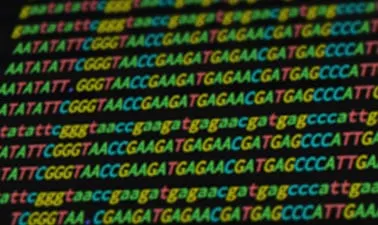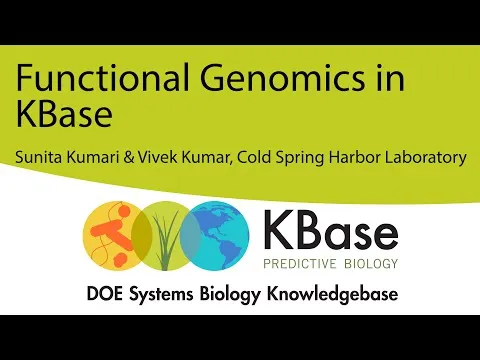
Case Studies in Functional Genomics 
Discover the fascinating world of functional genomics with the course "Case Studies in Functional Genomics." This comprehensive course will guide you through the standard processing and normalization steps, starting from raw data, to help you investigate relevant biological questions. With the use of exploratory plots, you will gain a general overview of the data and experiment results. From RNA-seq data analysis to DNA methylation and ChIP-seq datasets, this course covers it all. Whether you're a statistician or biologist, this self-paced course is perfect for you. Join now and unlock the secrets of genomics! ▼
ADVERTISEMENT
Course Feature
![]() Cost:
Cost:
Free
![]() Provider:
Provider:
Edx
![]() Certificate:
Certificate:
Paid Certification
![]() Language:
Language:
English
Course Overview
❗The content presented here is sourced directly from Edx platform. For comprehensive course details, including enrollment information, simply click on the 'Go to class' link on our website.
Updated in [September 25th, 2023]
What does this course tell?
(Please note that the following overview content is from the original platform)We will explain how to perform the standard processing and normalization steps, starting with raw data, to get to the point where one can investigate relevant biological questions. Throughout the case studies, we will make use of exploratory plots to get a general overview of the shape of the data and the result of the experiment. We start with RNA-seq data analysis covering basic concepts and a first look at FASTQ files. We will also go over quality control of FASTQ files; aligning RNA-seq reads; visualizing alignments and move on to analyzing RNA-seq at the gene-level : counting reads in genes; Exploratory Data Analysis and variance stabilization for counts; count-based differential expression; normalization and batch effects. Finally, we cover RNA-seq at the transcript-level : inferring expression of transcripts (i.e. alternative isoforms); differential exon usage. We will learn the basic steps in analyzing DNA methylation data, including reading the raw data, normalization, and finding regions of differential methylation across multiple samples. The course will end with a brief description of the basic steps for analyzing ChIP-seq datasets, from read alignment, to peak calling, and assessing differential binding patterns across multiple samples. Given the diversity in educational background of our students we have divided the series into seven parts. You can take the entire series or individual courses that interest you. If you are a statistician you should consider skipping the first two or three courses, similarly, if you are biologists you should consider skipping some of the introductory biology lectures. Note that the statistics and programming aspects of the class ramp up in difficulty relatively quickly across the first three courses. By the third course will be teaching advanced statistical concepts such as hierarchical models and by the fourth advanced software engineering skills, such as parallel computing and reproducible research concepts. These courses make up two Professional Certificates and are self-paced: Data Analysis for Life Sciences: PH525.1x: Statistics and R for the Life Sciences PH525.2x: Introduction to Linear Models and Matrix Algebra PH525.3x: Statistical Inference and Modeling for High-throughput Experiments PH525.4x: High-Dimensional Data Analysis Genomics Data Analysis: PH525.5x: Introduction to Bioconductor PH525.6x: Case Studies in Functional Genomics PH525.7x: Advanced Bioconductor This class was supported in part by NIH grant R25GM114818. HarvardX requires individuals who enroll in its courses on edX to abide by the terms of the edX honor code. HarvardX will take appropriate corrective action in response to violations of the edX honor code, which may include dismissal from the HarvardX course; revocation of any certificates received for the HarvardX course; or other remedies as circumstances warrant. No refunds will be issued in the case of corrective action for such violations. Enrollees who are taking HarvardX courses as part of another program will also be governed by the academic policies of those programs. HarvardX pursues the science of learning. By registering as an online learner in an HX course, you will also participate in research about learning. Read our research statement to learn more. Harvard University and HarvardX are committed to maintaining a safe and healthy educational and work environment in which no member of the community is excluded from participation in, denied the benefits of, or subjected to discrimination or harassment in our program. All members of the HarvardX community are expected to abide by Harvard policies on nondiscrimination, including sexual harassment, and the edX Terms of Service. If you have any questions or concerns, please contact [email protected] and/or report your experience through the edX contact form.Show moreWe considered the value of this course from many aspects, and finally summarized it for you from two aspects: skills and knowledge, and the people who benefit from it:
(Please note that our content is optimized through artificial intelligence tools and carefully reviewed by our editorial staff.)
What skills and knowledge will you acquire during this course?
During the course "Case Studies in Functional Genomics," students will acquire the following skills and knowledge:
1. Standard processing and normalization steps: Students will learn how to process and normalize raw data to investigate relevant biological questions.
2. Exploratory plots: Students will make use of exploratory plots to gain a general overview of the shape of the data and the results of the experiment.
3. RNA-seq data analysis: Students will learn the basics of RNA-seq data analysis, including concepts, handling FASTQ files, quality control, read alignment, and gene-level analysis.
4. Exploratory Data Analysis (EDA) and variance stabilization: Students will learn how to perform EDA and variance stabilization for count-based differential expression analysis.
5. Count-based differential expression: Students will learn how to count reads in genes and analyze differential expression based on these counts.
6. Normalization and batch effects: Students will understand the importance of normalization and how to account for batch effects in RNA-seq data analysis.
7. Transcript-level analysis: Students will learn how to infer expression of transcripts and analyze differential exon usage in RNA-seq data.
8. DNA methylation data analysis: Students will learn the basic steps in analyzing DNA methylation data, including reading raw data, normalization, and identifying regions of differential methylation.
9. ChIP-seq data analysis: Students will gain an understanding of the basic steps involved in analyzing ChIP-seq datasets, including read alignment, peak calling, and assessing differential binding patterns.
10. Advanced statistical concepts: By the third course in the series, students will be taught advanced statistical concepts such as hierarchical models.
11. Advanced software engineering skills: By the fourth course in the series, students will learn advanced software engineering skills, including parallel computing and reproducible research concepts.
Overall, this course series covers a wide range of topics in functional genomics, providing students with the necessary skills and knowledge to analyze various types of genomic data.
Who will benefit from this course?
This course on Case Studies in Functional Genomics will benefit individuals who are interested in or working in the field of genomics and molecular biology. Specifically, the course will be useful for:
1. Biologists: Biologists who want to gain a deeper understanding of functional genomics and learn how to analyze RNA-seq data, DNA methylation data, and ChIP-seq datasets. The course covers basic concepts and techniques in genomics analysis, allowing biologists to investigate relevant biological questions and make meaningful interpretations of their data.
2. Statisticians: Statisticians who want to apply their statistical knowledge and skills to genomics data analysis. The course covers advanced statistical concepts such as hierarchical models and statistical inference for high-throughput experiments. Statisticians can learn how to analyze genomics data and contribute to the field of functional genomics.
3. Data analysts: Data analysts who are interested in working with genomics data and want to expand their skill set. The course covers data processing, normalization, exploratory data analysis, and differential expression analysis, providing data analysts with the necessary tools to analyze genomics data effectively.
4. Researchers: Researchers in the field of genomics who want to stay updated with the latest techniques and approaches in functional genomics. The course covers case studies that demonstrate the application of genomics analysis to real-world scenarios, allowing researchers to learn from practical examples and apply the knowledge to their own research projects.
5. Professionals in related fields: Professionals working in fields related to genomics, such as pharmaceuticals, biotechnology, and personalized medicine, can benefit from this course by gaining a better understanding of functional genomics and its applications. The course provides a comprehensive overview of genomics data analysis, allowing professionals to make informed decisions and contribute to their respective fields.
Course Provider

Provider Edx's Stats at AZClass
Discussion and Reviews
0.0 (Based on 0 reviews)
Explore Similar Online Courses

Building a Professional LinkedIn Profile - 2022

Epigenetic Control of Gene Expression

Python for Informatics: Exploring Information

Social Network Analysis

Introduction to Systematic Review and Meta-Analysis

The Analytics Edge

DCO042 - Python For Informatics

Causal Diagrams: Draw Your Assumptions Before Your Conclusions

Whole genome sequencing of bacterial genomes - tools and applications

(2022) MCB 182 Lecture 2 - Functional genomics

Centre for Structural and Functional Genomics


Start your review of Case Studies in Functional Genomics